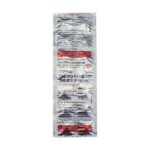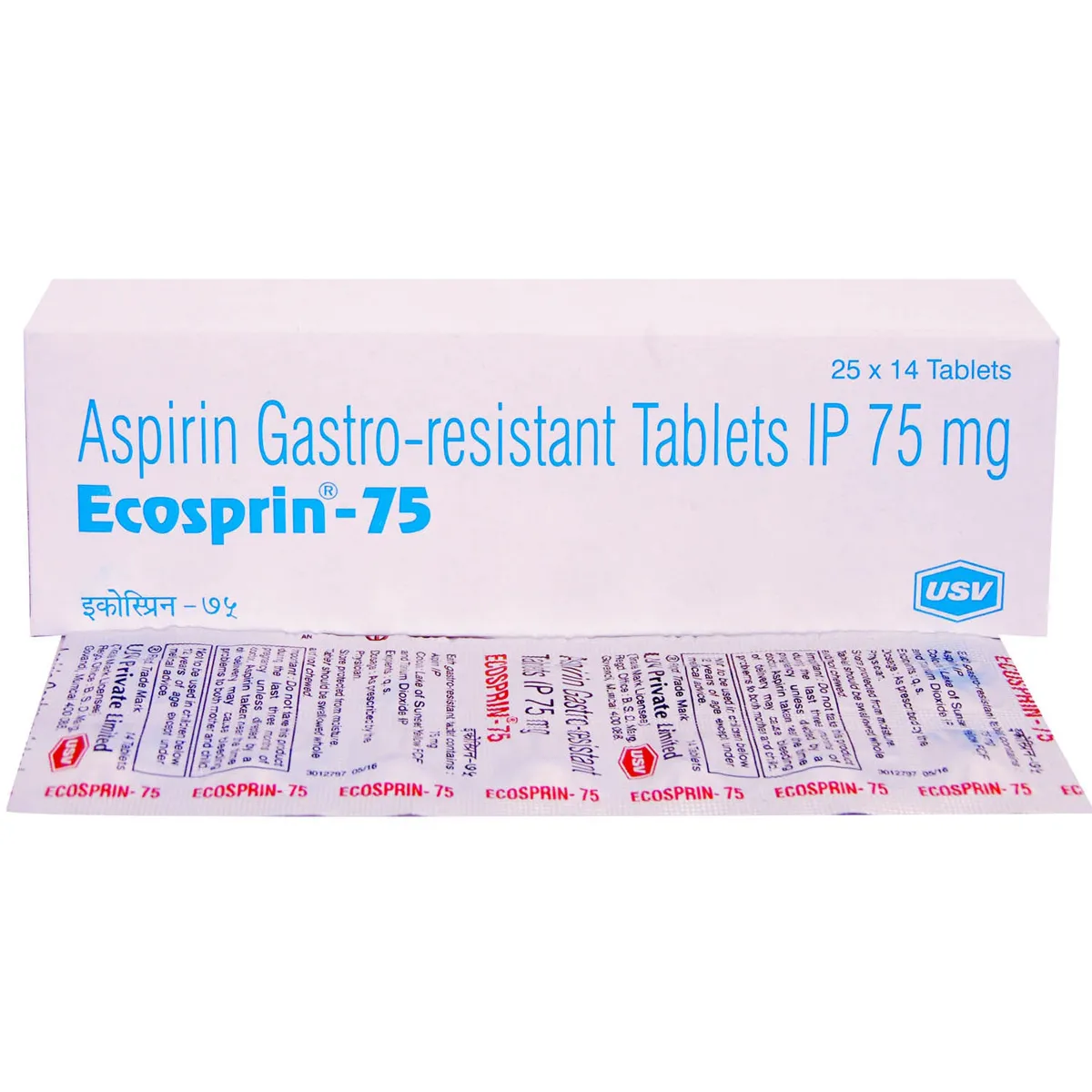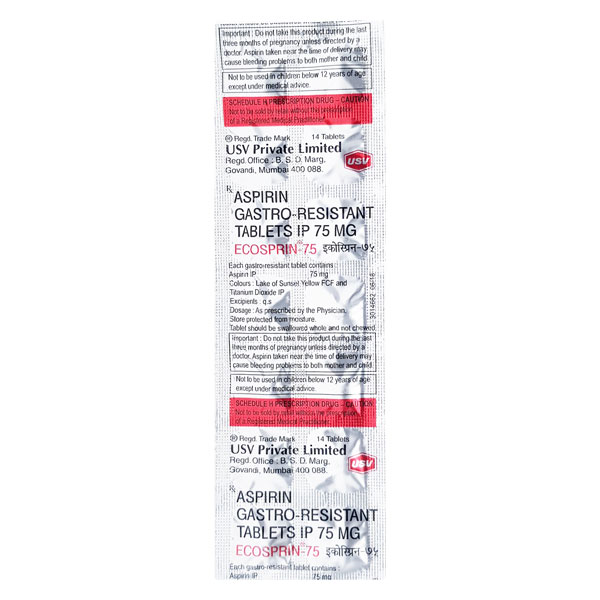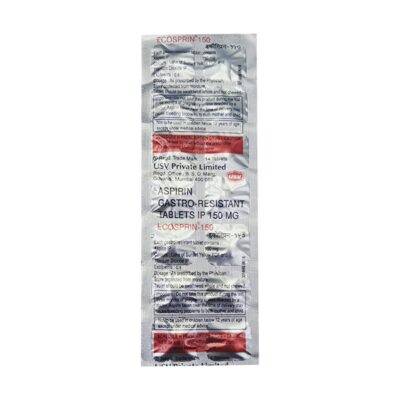Description
Aspirin 75 mg – Description
Aspirin 75 mg is a low-dose formulation of acetylsalicylic acid, primarily used as an antiplatelet agent. It helps prevent the formation of blood clots by inhibiting platelet aggregation. This low dose is commonly prescribed to reduce the risk of heart attacks, strokes, and other cardiovascular events in individuals with heart disease, a history of stroke, or other risk factors like diabetes and hypertension.
Unlike higher doses of aspirin, which are used to treat pain, inflammation, or fever, the 75 mg dose is not intended for pain relief. It works by blocking the cyclooxygenase (COX) enzyme, thereby reducing the production of thromboxane, a chemical that encourages platelets to stick together.
Doctors may prescribe aspirin 75 mg for:
-
Secondary prevention after a heart attack or stroke
-
Management of angina or coronary artery disease
-
Post-angioplasty or after stent placement
Safety Advice
1. Use Under Medical Supervision
Aspirin 75 mg should only be taken under the guidance of a healthcare provider. Do not start or stop the medication without consulting your doctor, especially if you are taking it to prevent cardiovascular events.
2. Who Should Not Take It
Low-dose aspirin may not be suitable for:
-
People with a history of gastrointestinal ulcers or bleeding
-
Individuals with bleeding disorders such as hemophilia
-
Those with asthma triggered by NSAIDs
-
People with liver or kidney problems
3. Pregnancy and Breastfeeding
Aspirin 75 mg is generally not recommended during pregnancy, particularly in the third trimester, unless specifically prescribed by a doctor. It can affect fetal blood circulation and prolong labor. Breastfeeding mothers should consult a healthcare professional before using this medication.
4. Interactions with Other Medicines
Aspirin can interact with several medications, increasing the risk of side effects. Inform your doctor if you are taking:
-
Blood thinners like warfarin or clopidogrel
-
NSAIDs (e.g., ibuprofen, naproxen)
-
Steroids
-
Selective serotonin reuptake inhibitors (SSRIs)
-
Certain blood pressure or diabetes medications
These interactions can increase the risk of bleeding or reduce the effectiveness of treatments.
5. Possible Side Effects
While many people tolerate low-dose aspirin well, it can cause side effects such as:
-
Indigestion or mild stomach pain
-
Nausea
-
Increased bleeding or bruising
-
Gastrointestinal bleeding (rare but serious)
Seek immediate medical attention if you notice signs of internal bleeding (e.g., blood in stool, vomiting blood, black tarry stools) or allergic reactions (e.g., rash, swelling, difficulty breathing).
Storage Instructions
1. Temperature and Environment
Store Aspirin 75 mg at room temperature (15°C to 25°C). Keep it away from moisture, heat, and direct sunlight.
2. Proper Packaging
Keep the tablets in their original packaging or tightly closed container to protect them from air and humidity.
3. Keep Out of Reach of Children
Store the medication out of the reach and sight of children. Even small doses can be dangerous to children if accidentally ingested.
4. Disposal of Unused Medication
Do not use the medicine after its expiry date. Return unused or expired medication to a pharmacy for safe disposal—do not flush it or throw it in household trash.
Conclusion
Aspirin 75 mg plays a vital role in cardiovascular prevention, especially for those at high risk of heart attack or stroke. When taken correctly and safely under medical supervision, it offers life-saving benefits. However, due to its blood-thinning properties, it must be used with caution and stored properly to ensure its effectiveness and prevent accidental harm.




